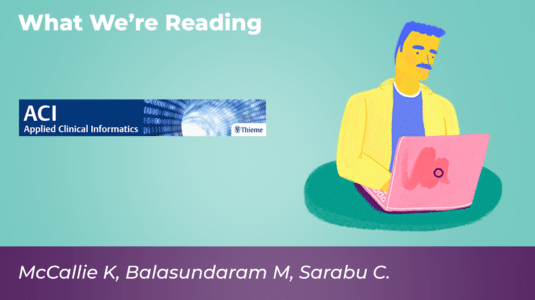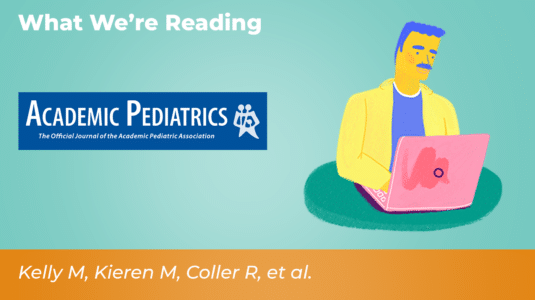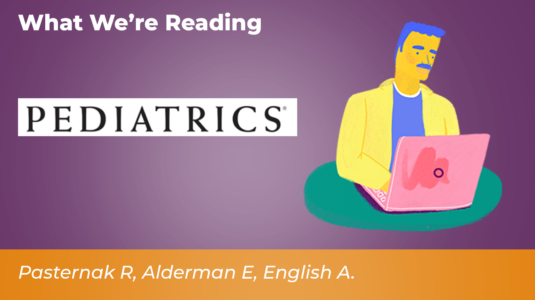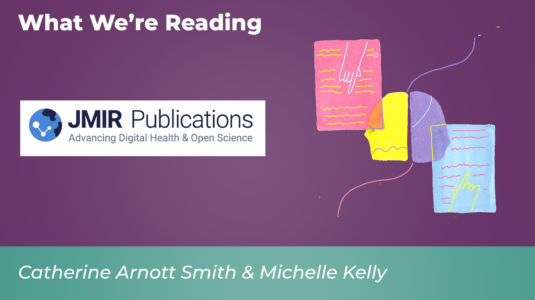At the end of the NICU discharge education, completed in the patient portal before discharge, families were offered an anonymous survey on OpenNotes. To the authors’ knowledge, this is the first study on NICU families’ perceptions of OpenNotes, which indicated positive interactions with the doctors’ daily progress notes and gave important suggestions for improvement.
Pediatrics
Pediatric open notes: Caregiver experiences since the 21st century Cures Act
While research on the impact of Open Notes in pediatric inpatient settings remains limited, recent findings have improved our understanding by adding actual caregiver experiences to the expectations identified in our initial study. As we move into this new era of transparency, we call for further investigation of the impact of note sharing on health care outcomes for children while continuing to develop strategies to mitigate challenges.
21st Century Cures Act ONC Rule: Implications for adolescent care and confidentiality protections
This article reviews the key aspects of confidentiality protections in adolescent health care, explains the ONC Rule, outlines clinical, HIT, and equity challenges associated with its implementation, encourages the development of policies protecting the confidentiality of adolescents’ EHI [ … ] and offers tools for analyzing key questions in individual cases and practical steps to address the confidentiality of EHI with patients and parents.
In anticipation of sharing pediatric inpatient notes: Focus group study with stakeholders
Distinct themes identified as benefits of pediatric inpatient Open Notes for parents emerged from all the 5 focus groups. These themes were communication, recapitulation and reinforcement, education, stress reduction, quality control, and improving family-provider relationships. Challenges identified included burden on provider, medical jargon, communication, sensitive content, and decreasing trust.
Lessons Learned from OpenNotes Learning Mode and Subsequent Implementation across a Pediatric Health System
The 21st Century Cures Act has accelerated adoption of OpenNotes, providing new opportunities for patient and family engagement in their care. However, these regulations present new challenges, particularly for pediatric health systems aiming to improve information sharing while minimizing risks associated with adolescent confidentiality and safety.
The Value of OpenNotes for Pediatric Patients, Their Families and Impact on the Patient–Physician Relationship
Although limited by relatively low survey response rate, OpenNotes was well-received by parents of pediatric patients without untoward consequences. The main concerns pediatricians raise about OpenNotes proved to not be issues in the pediatric population. Our results demonstrate clear benefits to adoption of OpenNotes. This provides reassurance that the transition to sharing notes with pediatric patients can be successful and value additive.
Filling a gap in safety metrics: development of a patient-centred framework to identify and categorise patient-reported breakdowns related to the diagnostic process in ambulatory care
The PRDB framework, developed in partnership with patients/families, can help organisations identify and reliably categorise PRDBs, including some that are invisible to clinicians; guide interventions to engage patients and families as diagnostic partners; and inform whole organisational learning.
Co-development of OurDX—an online tool to facilitate patient and family engagement in the diagnostic process
Patients and their care partners are usually the first to notice new or changing symptoms and are the connecting “thread” between different healthcare encounters. In this article Sigall Bell, Fabienne Bourgeois, Stephen Liu, and Eric Thomas—along with patient partners Betsy Lowe and Liz Salmi—describe the co-development of an online tool called “OurDX” (Our Diagnosis) to engage patients and families in the diagnostic process
OpenNotes: Anticipatory Guidance and Ethical Considerations for Pediatric Psychologists in Interprofessional Settings
The OpenNotes era has ushered in the possibilities of greater patient and family collaboration in shared decision-making and reduced barriers to documentation sharing. However, it has raised new ethical and clinician documentation considerations. In addition to clinician education, patients and families could benefit from education around the purpose of clinical documentation, how to utilize OpenNotes, and the benefits of engaging in dialogue regarding the content and tone of documentation.
A natural language processing pipeline to synthesize patient-generated notes toward improving remote care and chronic disease management: a cystic fibrosis case study
Our study demonstrated that an NLP pipeline can be used to create an automated analysis and reporting mechanism for unstructured PGHD. Further studies are suggested with real-world data to assess pipeline performance and further implications.







